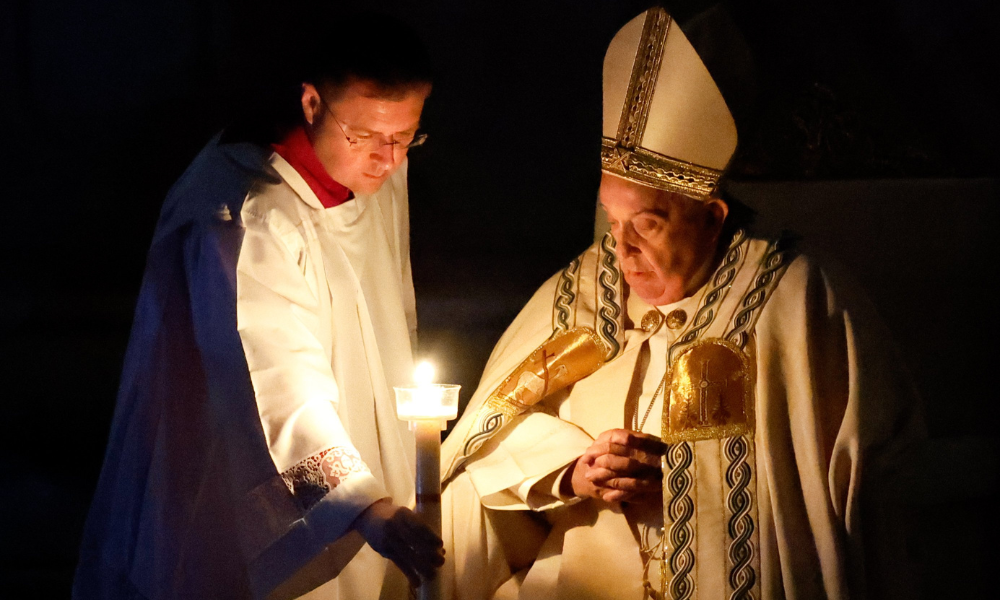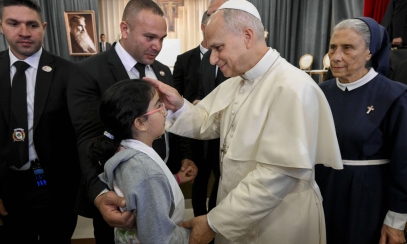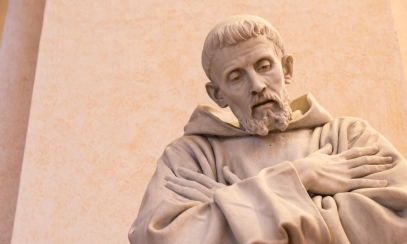
Pope Francis at Easter Vigil: Christ ‘Is the One Who Brings us From darkness into Light’
Pope Francis on Saturday evening presided over the Easter Vigil Mass at St. Peter’s Basilica, reflecting on the gravity of Easter as a symbol of God's reborn hope and the ultimate testament of life over death.
Pope Francis on Saturday evening presided over the Easter Vigil Mass at St. Peter’s Basilica, reflecting on the gravity of Easter as a symbol of God's reborn hope and the ultimate testament of life over death.
There were some concerns on Friday night about the pope’s well-being after the Holy Father canceled his attendance at Rome’s Via Crucis (Way of the Cross) at the last minute. The Holy See Press Office said the pope made the decision “to conserve his health” for the lengthy Easter Vigil liturgy.
“This is the Pasch of Christ, the revelation of God’s power: the victory of life over death, the triumph of light over darkness, the rebirth of hope amid the ruins of failure. It is the Lord, the God of the impossible, who rolled away the stone forever,” the pope said on Saturday in front of nearly 6,000 faithful gathered in the basilica.
“He is the one who brings us from darkness into light, who is bound to us forever, who rescues us from the abyss of sin and death, and draws us into the radiant realm of forgiveness and eternal life,” the pope continued in his homily.
The dramatic liturgy opened with St. Peter’s Basilica shrouded in darkness. The Holy Father was positioned in front of the 15th-century Filarete Door (covered in a white curtain and an embroidered tapestry of the resurrected Christ).
The pope inscribed a cross and the alpha and omega (the first and last letters of the Greek alphabet) on the white paschal candle, symbolizing Christ’s resurrection and the Christian hope of a new life in him.
Processing up the central nave of the basilica, a deacon carried the candle, pausing and chanting at three different times “Lumen Christi” (“Light of Christ”) to which the congregation responded “Deo Gratias” (“Thanks be to God”).
This moment was followed by the chanting of the Exultet, or the Easter proclamation, an ancient prayer that invites the faithful to join the church in celebrating Christ’s resurrection.
Pope Francis opened his homily by reflecting on the anguish and consternation of the women depicted in the Gospel who with “the tears of Good Friday ... not yet dried” approached the tomb that had been obstructed with a stone.
“That stone, an overwhelming obstacle, symbolized what the women felt in their hearts. It represented the end of their hopes, now dashed by the obscure and sorrowful mystery that put an end to their dreams.”
“That stone marked the end of Jesus’ story, now buried in the night of death. He, the life that came into the world, had been killed,” the pope continued.
But, the pope noted, the women, upon casting their gazes upward, found the stone rolled away, a moment showcasing “the victory of life over death, the triumph of light over darkness, the rebirth of hope amid the ruins of failure.”
The pope related the initial anguish, and hope, of the women present at the sepulchre, noting that today we each “encounter such ‘tombstones’ on our journey through life in all the experiences and situations that rob us of enthusiasm and of the strength to persevere.”
Yet the pope implored the faithful to not succumb to despondency but instead draw hope from the resurrection.
“If we allow Jesus to take us by the hand, no experience of failure or sorrow, however painful, will have the last word on the meaning and destiny of our lives. Henceforth, if we allow ourselves to be raised up by the risen Lord, no setback, no suffering, no death will be able to halt our progress toward the fullness of life.”
“Then no stone will block the way to our hearts, no tomb will suppress the joy of life, no failure will doom us to despair,” the pope continued. “Let us lift our eyes to him and ask that the power of his resurrection may roll away the heavy stones that weigh down our souls."
Following a brief moment of reflection at the end of the homily, Pope Francis opened up the baptismal rite. With the blessing of the water and a public recitation of vows, the Holy Father personally baptized eight adults: four Italians, two Koreans, a Japanese man, and an Albanian.



